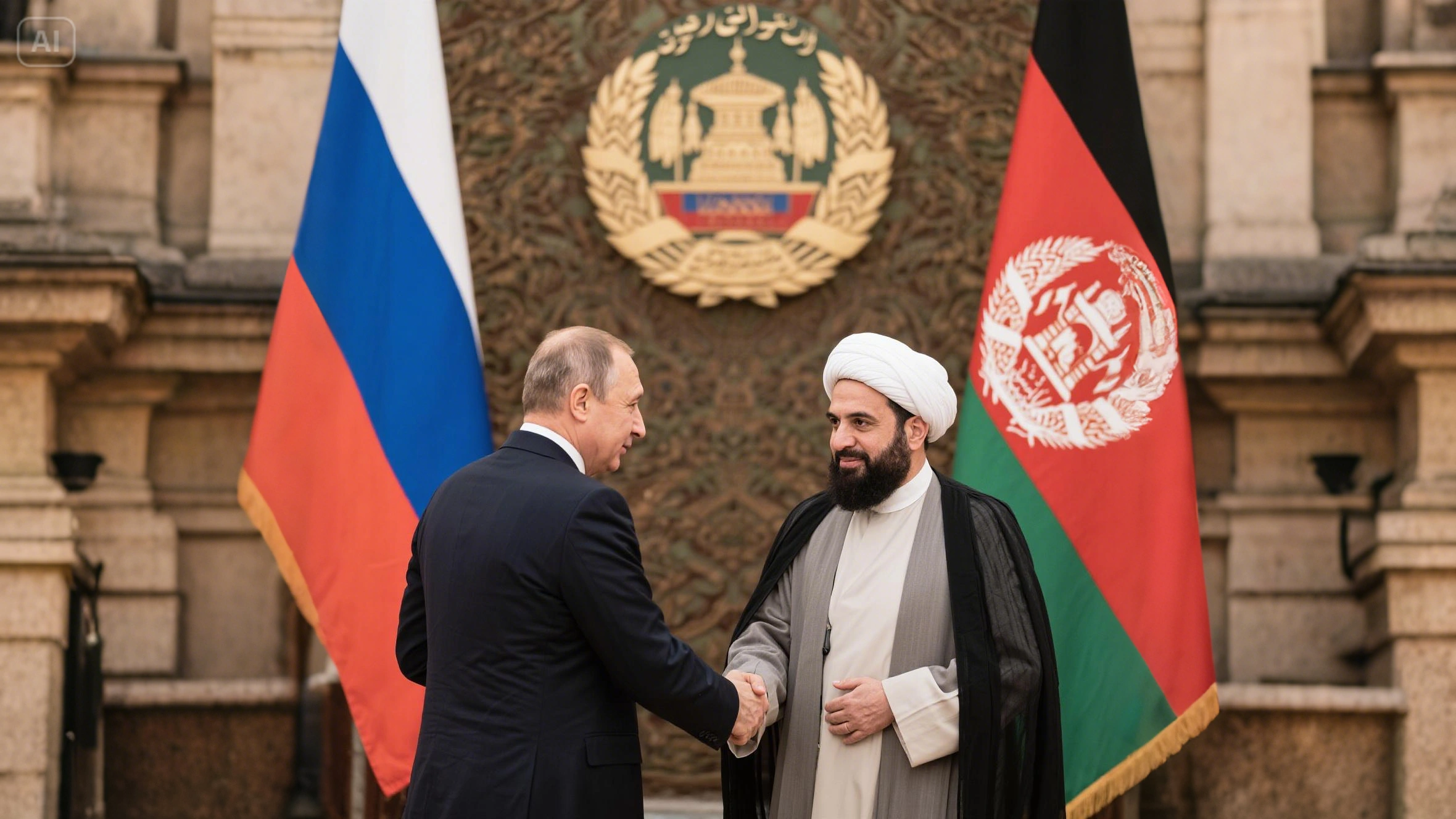Russia Opens to Taliban-Led Afghanistan

Russia Opens to Taliban-Led Afghanistan
New age of Diplomacy in Central Asia?
In an important geopolitical move Russia just recently established diplomatic relations with Taliban-run Afghanistan formally, indicating a change of tune in global affairs in the region. This transition highlights an increased readiness within international powers to recognize the Taliban as a ruling power, although the group has had a rather controversial history, and issues concerning human rights thereof are still prevalent. It is to delve into the repercussions and reasons behind the move which are historical in the relationship between Moscow and Kabul.

Russia Accepts Taliban Realities in Ground
Russia has been pragmatic unlike other western countries who have held back to recognize the Taliban regime which seized power in August 2021. The Taliban has had a working relationship with Kremlin which is mainly characterized by informal diplomatic activities. Nonetheless, the recent events also suggest a more fundamental change – that of transitioning away from informal negotiations to a much more organized and open system of diplomacy.
The foreign ministry of Russia provided confirmation that it has accredited the Taliban diplomats in a move which de facto acknowledges the fact that they are in control of Afghanistan. This moves lacks formalization but makes room to have bilateral ties on security, trade and regional stability.
Russia making Such a Decision due to Strategic Interests
Security Issues of Central Asia
The rising interest of Russia in Taliban controlled Afghanistan can be explained in wide part by its security interests in Central Asia. Moscow faces huge risk of terrorism, illegal drug trade and regional instability since Afghanistan is surrounded by a few former Soviet republics including Tajikistan, Turkmenistan, and Uzbekistan. Russia is more concerned about having a working relationship with Taliban to maintain stability of its border by avoiding the spillage of jihadism in other regions which are allies.
Â
Cutting down the Capacity of the West
The other cause of the relocation of Russia is its willingness to resist the influence of the U.S and NATO in the area. When the Western troops left the country and most international relations avenues were blocked, Russia noticed to seize an open space, dominate the region, and establish a multi-polar world order that reduces the Western hegemony.
Â
Trade and Economic Opportunities
According to Russia, it has prospects of long term trading with Afghanistan notwithstanding its fragile economy and a continued humanitarian crisis. It is interested in natural resources, rare earth minerals and future infrastructure initiatives like energy pipelines or rail links. In addition to agricultural export partners, oil transactions, and reconstruction contracts Moscow is also trying to find partners of any agriculture they sell, any oil they sell, and any reconstruction contracts of any kind it may have so this possibility that Afghanistan could be included into the Eurasian plan of the Moscow economic strategy.
Mixed reaction in the international scene
Western Nations Are Still Careful
The European Union and the United States, especially the West, have responded by being cautious and contributing towards skepticism. The action by Russia has been described by human rights groups as misguided and untimely since it lends credibility to a government that stills oppresses women and curbs the voices of those who want to rise to the surface. Washington has restated again there should only be formal recognition when there is progress towards human rights, inclusivity and counterterrorism undertakings.
Â
China, Iran and Regional Powers Pay Special Attention
Russia has not been the only country that has had links with the Taliban as China and Iran have done the same. These countries have not been in a rush to acquaint Afghanistan with formal recognition but have shown some interest in the mineral wealth and geostrategic location in Afghanistan. Russia and China, being the members of the Shanghai Cooperation Organization (SCO) have also began discussing some of the strategies to incorporate Afghanistan into the regional structures.
Â
The Diplomatic Success of Taliban?
The Taliban find this move by Russia as a supposedly symbolic and strategic victory. It boosts their international credibility, particularly, when they are being sidelined by most of the world as pariahs. The cooperation with Russia may encourage more financial assistance, investments and recognition by other regional powers.
Experts are however, cautioning that the Taliban still must answer international concerns regarding extremism, governance and women rights. The opening with Russia can be more ceremonious than revolutionary unless there are real reforms.
Markings to the region Power Play
The Definition of Afghanistan into Eurasia
The action of Russia would have a possibility of incorporating Afghanistan into a Eurasian picture especially in a case where the Taliban would succeed in stabilizing the nation. This may bring new trade routes, cross-border security relations and energy transactions to the advantage of the countries in Central Asia.
Â
Revision of the Diplomatic Playbook
This is an indication that global diplomatic norms might possibly be redesigned in a manner whereby engagement might supersede ideology. In its conduct towards the Taliban, the Russian government undermines the isolationist policies of the world and advances realpolitik as the postulate of the contemporary diplomacy.
Â
Diplomatic gamble or Masterstroke?
The opening of the unfettered Taliban-dominated Afghanistan to Russia is a radical, provocative and possibly drastic diplomatic step. On the one hand, it is not without dangers that plunk Moscow into the eye of a hurricane of backlash on human rights fronts to instability of a region already on the brink; on the other hand, it provides Moscow with a great strategic volume in a very strategically important theater.
Whether this will be a new phase of stability or a diplomatic misjudgment is to be seen in the way the Taliban will continue to develop as a ruling power and how the global powers will decide to react in the following months. At least, at this point, it is obvious that Russia has taken its bet in the realm of engagement rather than isolation.








